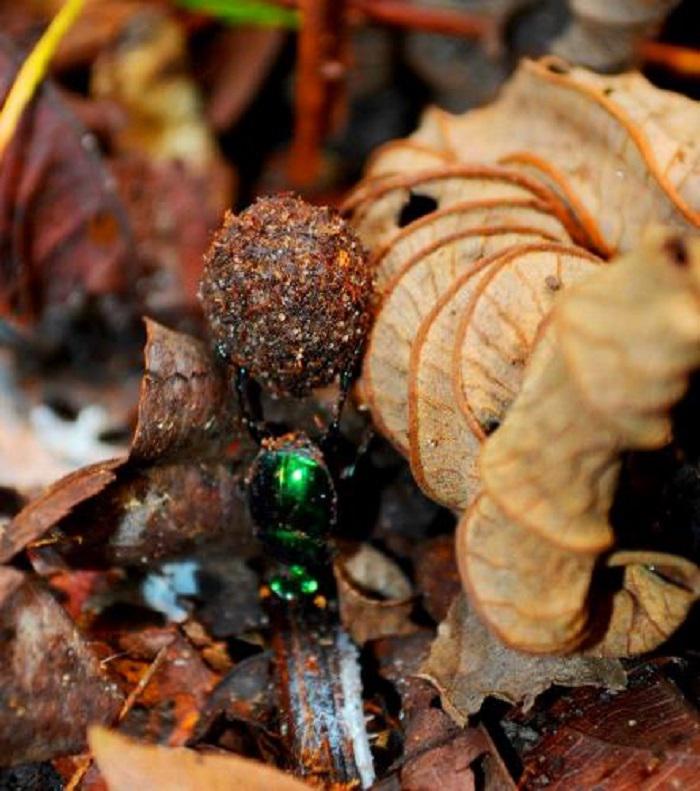Thamyrys Bezerra de Souza
The Brazilian Atlantic Forest has suffered a long history of human influence, with nearly 90% of the original vegetation being replaced by anthropogenic environments. Herein we aim to understand: i) how landscape-scale deforestation affects the functional diversity of dung beetles; ii) which species are most sensitive to this disturbance; iii) which traits morphologic and behaviour are most negatively affected to this disturbance. At the end of this study, we aim to understand to which degree of deforestation rich assemblages of dung beetles can cope with. The study will be carried out along the forests of southern Bahia, north-eastern Brazil, a pocket of endemism within the Atlantic forest biome considered as a priority for conservation actions.

A telecoprid dung beetle specie (Canthon prasinus) in Atlantic forest of Southern Bahia.
The understanding of the links between biodiversity and ecological functions is needed to fully recognize the consequences of the imminent biodiversity crisis. However, few studies have investigated the implications of man-induced changes in the functional diversity, using representative traits of species mediating ecosystem functions. This understanding is particularly important for tropical forests such as the Brazilian Atlantic forest. The Brazilian Atlantic Forest is one of the most diverse ecosystems in the world, with a rich biota showing high rates of endemism. By contrast, more than 80% of the remaining forest comprises fragments smaller than 50 ha, with almost half located at less than 100 m from forest edges, showing that the region suffered an unprecedented level of habitat loss and other human disturbances going back to the 16th century.
The Atlantic Forest of southern Bahia is one of the three pockets of endemism (known as Central Corridor) along the Atlantic forest, currently considered a global hotspots for biodiversity conservation. We are interest in assessing the effects of such massive habitat conversion on fauna functional diversity. Then, we decided to investigate the impacts of landscape-scale deforestation on functional diversity of dung beetles, an important bio indicator of forest quality in tropical forests.
Our study will be carried out in anthropogenic landscapes of southern Bahia, a regional pocket of endemism within the Atlantic forest biome and land use changes were particularly more severe in the last 30 decades, with large tracts of once continuous forests being converted to small forest fragments in different succession stages embedded within a mosaic of different land use types, such as cocoa plantations, rubber trees, and cattle pastures. Deforestation is shown to be a powerful predictor of biodiversity changes, triggering changes in many ecological processes mediated by a series of biological groups.